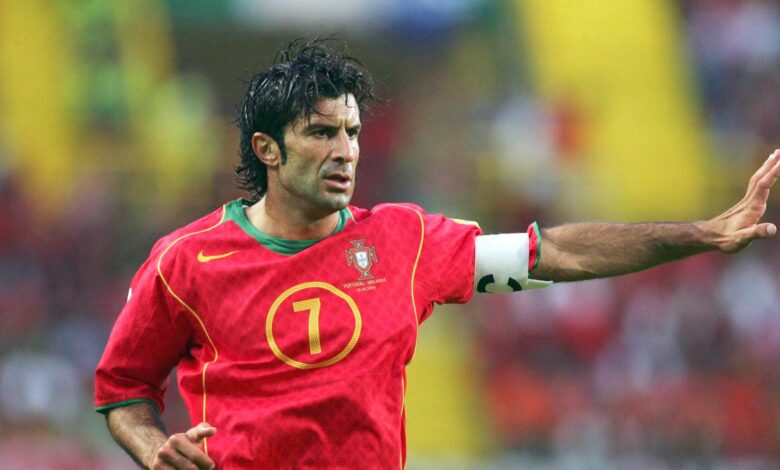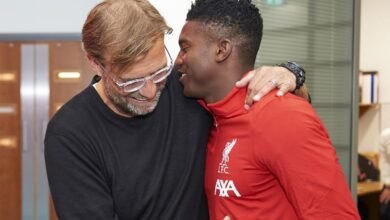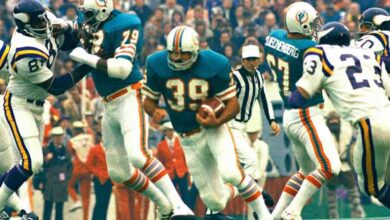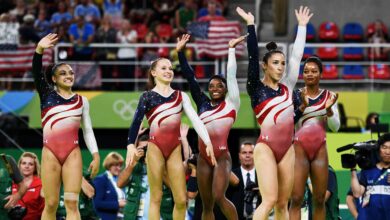5 best teams that never won the European Championship

- 5 best teams that never won the European Championship
Not every great football team wins trophies and not every team to win a trophy can be considered great. The European Championship’s long list of winners certainly includes both sides of that coin and we’ve decided to delve into some of the best to have fallen short.
Here are five of the best teams that never won the European Championship.
Netherlands (1976)
The Netherlands will look back on their 1970s side with a perpetual feeling of what might have been. Between 1970 and 1973, the European Cup went to Dutch sides in four straight seasons and the national team was packed full of the Feyenoord and Ajax alumni of that golden era.
The Oranje had reached the World Cup final in 1974, losing to West Germany in Munich, but entered the European Championship two years later as favourites. Then a four-team tournament, a Dutch side captained by Johan Cruyff lost to eventual winners Czechoslovakia in their semi-final in extra time.
George Knobel’s side regrouped to win the third-place play-off but missed another chance for maiden silverware success. Their Euro 1976 campaign was sandwiched between two appearances in the World Cup final, though both ended in defeat.
Yugoslavia (1992)
Denmark’s triumphant 1992 campaign is one of the most iconic Euro stories, with the Danes only instated into the tournament after Yugoslavia’s expulsion. The latter were removed as a result of the outbreak of civil war in the country, denying a supremely talented team the chance at European Championship success.
A year earlier, Red Star Belgrade had won the European Cup with a team consisting of just one foreign footballer, while several of the squad set for Euro ’92 had tasted success at the 1987 under-20 World Cup and were maturing.
The outbreak of the war saw the nation’s best talent leave the domestic league, with Europe’s elite coming calling. Zvonimir Boban, Dejan Savićević (Milan), Predrag Mijatović, Davor Suker (Real Madrid), and Dragan Stojkovic and Alen Bokšić (Marseille) all won the Champions League with foreign clubs in the nineties, while Darko Pančev won the 1991 European Golden Shoe and Siniša Mihajlović ended his career with Serie A’s free-kick record.
Yugoslavia’s talented crop were regulars at the top end of the Ballon d’Or votes in the early nineties, but the collapse of the country prevented their team from a real chance at success.
Netherlands (2000)
A second inclusion for the Netherlands, who could well have more sides nominated for this list. The Oranje’s shock exit to Russia after blitzing through a ‘Group of Death’ at Euro 2008 remains a missed opportunity, though it’s Euro 2000 that will most rankle.
As co-hosts of the tournament, the Dutch topped a group containing world champions France with three wins from three, before battering Yugoslavia 6-1 in the quarter-finals as Patrick Kluivert scored a hat-trick.
The football Gods appeared to be with the host nation as Gianluca Zambrotta was sent off on 34 minutes for Italy, but the Dutch were unable to break down a resolute Azzurri team and spurned two golden chances from the spot.
Frank de Boer and Patrick Kluivert missed spot kicks in normal time as the tie headed to a shootout, where Francesco Toldo – deputising for the injured Gianluigi Buffon – was the hero. He made saves from De Boer, Jaap Stam and Paul Bosvelt to send the Azzurri into the final against France.
For the Dutch, it was the fourth time in five major tournaments that penalties had been their downfall.
England (2004)
England have a strong argument as international football’s greatest underachiever. One of football’s proudest nations and with arguably the strongest domestic league in the world, a return of one major tournament success is staggeringly short of expectations.
The Three Lions have a history of disappointing at tournaments and Euro 2004 was one billed as a real chance to end their wait for success. Sven-Goran Eriksson led a ‘Golden Generation’ of talent, with a first XI full of players among the best in world football in their respective positions.
Ashley Cole was perhaps the finest left-back on the planet, while Sol Campbell and John Terry forged a centre-back partnership as good as any in the tournament. Further forward, Michael Owen won the Ballon d’Or in 2001, David Beckham was a runner-up for the award, and Steven Gerrard and Frank Lampard finished on the podium together in 2005. We’ve not even mentioned Wayne Rooney, then the most exciting young footballer in Europe.
England opened the tournament with an unfortunate defeat to holders France but regrouped to beat Switzerland and Croatia. Rooney was the star of the show, as the 18-year-old scored four times. In the quarter-final, disaster struck, as Rooney was withdrawn with a fractured metatarsal in the first half. In his absence, England crashed out of the competition on penalties to Portugal, with a real shot of success gone.
Of England’s starting XI for that quarter-final, eight would win the Champions League throughout their careers.
Portugal (2004)
The Portugal team that eliminated England from Euro 2004 will have nightmares about their failure to complete the job.
As host nation, Portugal looked well placed to win a first-ever major tournament under the management of Luiz Felipe Scolari, who had guided Brazil to World Cup success two years earlier.
Six of the Portugal squad had won the Champions League with FC Porto in 2003-04, while Rui Costa added maverick match-winning quality alongside past and future Ballon d’Or winners, Luis Figo and Cristiano Ronaldo. After a setback in losing to Greece in their opener, Portugal bounced back to reach the knockout rounds as group winners.
England were beaten on penalties in a quarter-final epic before goals from Maniche and Ronaldo earned the hosts a 2-1 win over a talented Netherlands team in the last four.
In the final, a rematch with rank underdogs Greece awaited. Their opponents had been as highly priced as 100/1 to win the tournament before a ball had been kicked but completed their miracle achievement as Angelos Charisteas scored the final’s only goal.
Portugal were left to rue their missed opportunity at the Estádio da Luz.




